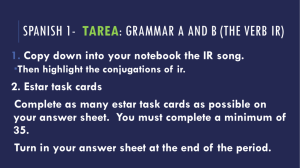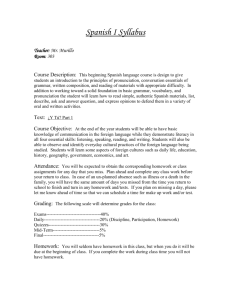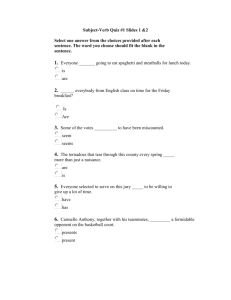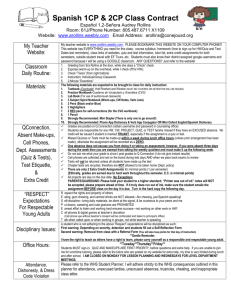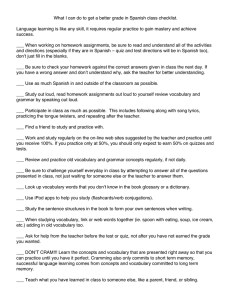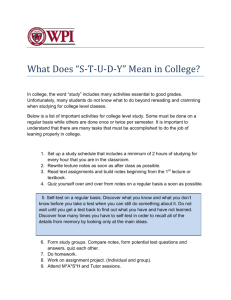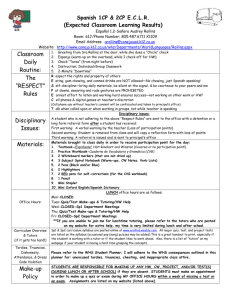HOW TO SUCCEED IN SPANISH
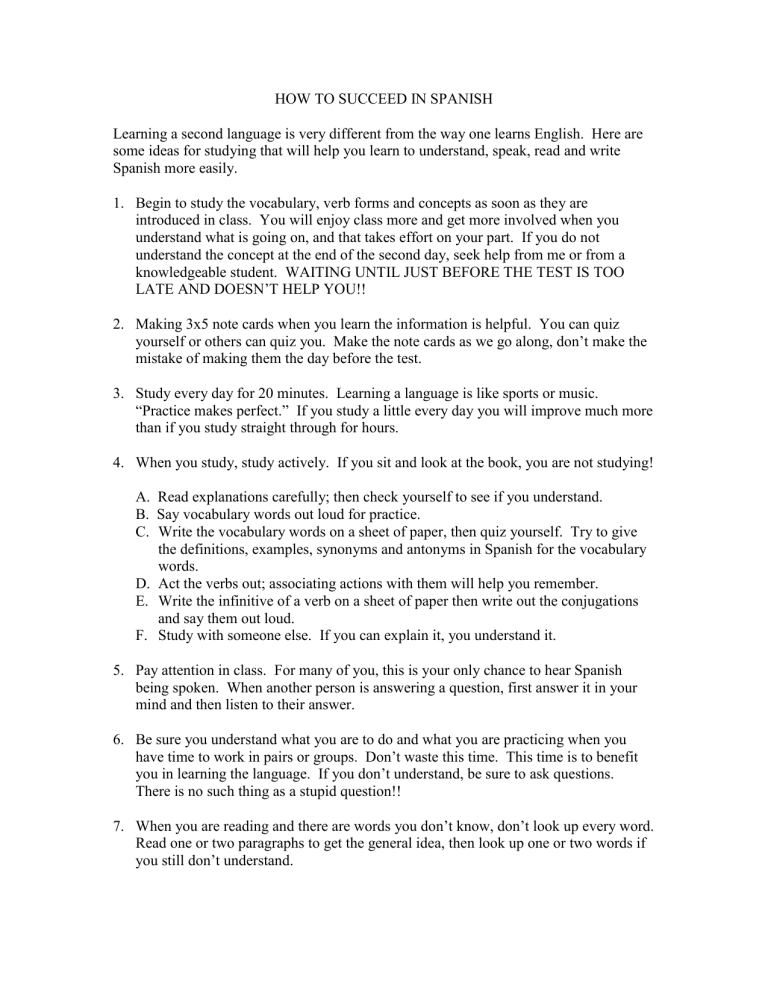
HOW TO SUCCEED IN SPANISH
Learning a second language is very different from the way one learns English. Here are some ideas for studying that will help you learn to understand, speak, read and write
Spanish more easily.
1.
Begin to study the vocabulary, verb forms and concepts as soon as they are introduced in class. You will enjoy class more and get more involved when you understand what is going on, and that takes effort on your part. If you do not understand the concept at the end of the second day, seek help from me or from a knowledgeable student. WAITING UNTIL JUST BEFORE THE TEST IS TOO
LATE AND DOESN’T HELP YOU!!
2.
Making 3x5 note cards when you learn the information is helpful. You can quiz yourself or others can quiz you. Make the note cards as we go along, don’t make the mistake of making them the day before the test.
3.
Study every day for 20 minutes. Learning a language is like sports or music.
“Practice makes perfect.” If you study a little every day you will improve much more than if you study straight through for hours.
4.
When you study, study actively. If you sit and look at the book, you are not studying!
A. Read explanations carefully; then check yourself to see if you understand.
B. Say vocabulary words out loud for practice.
C.
Write the vocabulary words on a sheet of paper, then quiz yourself. Try to give the definitions, examples, synonyms and antonyms in Spanish for the vocabulary words.
D.
Act the verbs out; associating actions with them will help you remember.
E.
Write the infinitive of a verb on a sheet of paper then write out the conjugations and say them out loud.
F.
Study with someone else. If you can explain it, you understand it.
5.
Pay attention in class. For many of you, this is your only chance to hear Spanish being spoken. When another person is answering a question, first answer it in your mind and then listen to their answer.
6.
Be sure you understand what you are to do and what you are practicing when you have time to work in pairs or groups. Don’t waste this time. This time is to benefit you in learning the language. If you don’t understand, be sure to ask questions.
There is no such thing as a stupid question!!
7.
When you are reading and there are words you don’t know, don’t look up every word.
Read one or two paragraphs to get the general idea, then look up one or two words if you still don’t understand.
8.
Look at your work before you hand in an assignment or quiz/test. Missing accent marks or misspelled words not only lower your grade, but can change the meaning of a word completely. Also, when you get back your quiz/test, check your mistakes so you can concentrate on them and not repeat the same mistake.
9. Take advantage of all the extra help available. If your teacher has made computer tests or games, use those as extra practice. See how fast you can complete them correctly. Take them as practice tests then review which items you may have missed and take them again until you can get 100%. If there is an item that you do not understand on one of the computer tests, write it down and ask your teacher in class.
10. If you don’t understand something, seek help from your friends or from your teacher right away. DON’T WAIT!! Each unit/chapter that we cover is built on the material from the units that came before it. The sooner your question is answered, the better you will do in class. If you do not understand something and we keep moving on, you are going to have absolutely NO CLUE as to why you are learning certain concepts. So for your own sanity (and mine, of course), PLEASE DON’T WAIT
UNTIL THE LAST MINUTE!! Your teacher will be happy to help you if you still don’t understand or if you need clarification. Please ask. Your teacher will not know if you have problems with the material if you don’t ask!
11. Learn the vocabulary!! Most of the problems students encounter in the upper level classes are due to poor vocabulary. If you don’t know what the words mean, you cannot intelligently answer a question. If you don’t know what the words are on a test, you will not do too well on it. When you get your test back, go over it and find the words you don’t know. Make a point of learning those words. You are bound to see them again!
